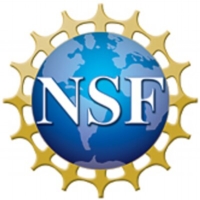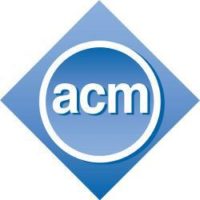NSF Dear Colleague Letter: Career-Life Balance (CLB) Supplemental Funding Requests

The following is a Dear Colleague Letter recently issued by the National Science Foundation on Career-Life Balance Supplemental Funding Requests.
Dear Colleagues:
BACKGROUND
Instituted in 2012, NSF’s Career-Life Balance (CLB) initiative is an agency-wide approach to help attract, retain, and advance graduate students, postdoctoral researchers, and other researchers in STEM fields. This effort aims to help reduce the rate at which early-career researchers depart from the STEM workforce.
With this Dear Colleague Letter (DCL), NSF draws attention to the opportunity for supplemental funding to help researchers, who are confronted with a short-term increase in dependent care responsibilities, ensure that the research activities supported by an NSF award can continue. Historical information about CLB may be found on the Foundation’s website for this initiative: https://www.nsf.gov/career-life-balance/.
PURPOSE
NSF recognizes that primary dependent care responsibilities and other family considerations pose unique challenges to the STEM workforce. The purpose of this DCL is to announce NSF’s continued interest in CLB supplemental funding requests, with two key changes from CLB DCLs issued in FY 2013: 1) an increase in the amount and duration of salary support that may be requested; and 2) an extension of the opportunity to Principal Investigators (PIs) and co-PIs of all active NSF grant or cooperative agreements.1
Career Life Balance supplements to existing research awards may be requested for the following purposes:
- To support additional personnel (e.g., a technician or research assistant) to sustain research when the PI, co-PI, or other member of the Senior Personnel is on family leave for primary dependent care responsibilities and other direct family considerations; and
- To support additional personnel (e.g., a technician or research assistant) to sustain research while a postdoctoral researcher or graduate student being supported by NSF on the award is on family leave for primary dependent care responsibilities and other direct family considerations.
Graduate Research Fellowship Program (GRFP) awardee institutions may request supplemental funding:
- To support additional personnel (e.g., a technician or research assistant) to sustain the research of NSF Graduate Research Fellows on approved medical deferral due to primary dependent care (family leave) situations.2
Provided that a postdoctoral fellowship award, funded through one of NSF’s postdoctoral fellowship programs, is made to an institution and not directly to the fellow, the awardee may request supplemental funding for the following purpose:
- To support additional personnel (e.g., a technician or research assistant) to sustain research while the postdoctoral fellow being supported by NSF on the award is on family leave for primary dependent care responsibilities and other direct family considerations.3
The supplemental request may include funding for up to six months of salary support or stipend for a maximum of $30,000 in direct costs of salary compensation or stipend, but the duration of the salary or stipend support may not exceed the duration of the family leave. Fringe benefits and associated indirect costs, but not tuition, may be included in addition to the salary costs, and therefore, the total supplemental funding request may exceed $30,000.
Such requests for supplemental funding support must be signed and submitted by an Authorized Organizational Representative (AOR) via use of NSF’s electronic systems and must be adequately justified. It may take NSF up to two months or more to process such a request. CLB supplements will usually be reviewed internally unless the program officer determines that the advice of external reviewers is essential.
Special Instructions for the Preparation and Submission of CLB Supplemental Funding Requests
The CLB Supplemental Funding Request must:
-
- Clearly specify that this is a CLB supplemental funding request;
- Provide a description of how the technician, research assistant, or equivalent would be used to sustain the research effort while the PI, co-PI or other member of the Senior Personnel is on family leave, the NSF Graduate Research Fellow is on medical deferral for a family leave situation, or the postdoctoral researcher or graduate student is on family leave;
- Provide a budget and budget justification in support of requested costs;
- Identify the proposed period of performance for the technician, research assistant, or equivalent; and
- Include the following statement:
“The Authorized Organizational Representative hereby certifies that the request for a technician (or equivalent) is because the (PI/co-PI/senior investigator/Fellow/postdoctoral researcher/graduate student) is, or will be, on family leave status (or equivalent) from the institution in accordance with the institution’s policies. The Authorized Organizational Representative also affirms that it is able to fill the position for which funding is being requested, in an appropriate timeframe.”
No privacy-related information should be provided in this request, i.e., the rationale for leave should not be disclosed to NSF.
1 Earlier CLB supplemental funding opportunities were afforded to specific types of investigators. Descriptions of earlier CLB opportunities may be found at https://www.nsf.gov/career-life-balance/.
2 This supplemental funding opportunity is in addition to the limited paid leave option for Fellows on Tenure with an NSF-approved medical deferral.
3 NSF postdoctoral fellows whose fellowship is paid directly into their bank account by NSF are unable to receive CLB supplements.
GRFP awardee institutions must include a letter from the Fellow’s faculty advisor supporting the CLB/GRFP Supplemental Funding Request.
Questions about the submission of a Career Life Balance supplement should be addressed to the cognizant NSF program officer for the underlying award.
Sincerely,
C. Suzanne Iacono
Office Head
Office of Integrative Activities



